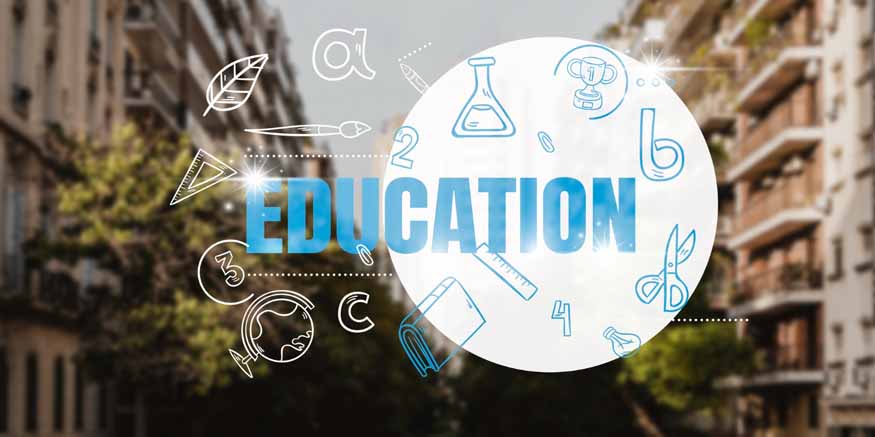Final exams are one of the most critical aspects of a student’s academic life. Exams are a culmination of all the learnings and work put together and hence preparing for them can be stressful for students. However, by following the right study tips, appearing for final exams can become a breeze.
By following the amazing study tips outlined in this blog, an overwhelming and nightmarish experience can be changed into an exciting process that is sure to help students excel.
Begin preparations early
The most important tip for studying for a final exam is to start preparing early. Do not wait until the last minute to begin studying. This will only cause unnecessary stress. Instead, start studying a few weeks in advance. This will give you ample time to review all of the material you need to know and to ask your teachers and classmates for help if needed. Understand the format of the exam before creating a schedule. E.g.: if the exam is an objective multiple-choice exam, you will need to spend more time on the key concepts. If the exam is a subjective exam with explanatory answers, you will need to focus on understanding the course in-depth and practising your writing skills.
Also Read: International Exams Prepration
Create a study schedule
Before you start studying, create a study schedule. Creating a schedule will help you stay organised and on track. Optimise your study schedule by utilising your most alert and productive hours of the day to review the syllabus. Plan your breaks during periods when your productivity naturally dips. This approach will help ensure that you make the most of your study sessions, maximizing productivity and effectiveness.
A schedule for any subject can be made as under:
Monday
9:00 AM – 10:30 AM – Review chapters 1-4
10:30AM – 11:30 AM – Break
11:30 AM – 1:00 PM – Read class notes
1:00 PM – 2:00 PM – Lunch Break
2:00 PM – 4:30 PM – Solve mock papers
The strategy is to break down the subject material into smaller, manageable parts and allocate enough time for each chapter/section. This way, you can avoid last-minute cramming and ensure that you have enough time to prepare for each topic without overburdening yourself. The schedule must factor in focused study time along with breaks to release your stress. Keep your schedule at a place visible to you and ensure you stay on track.
Take breaks
Taking breaks is important for maintaining focus and avoiding burnout. Incorporate frequent breaks in your schedule. Ensure you take a brief walk, stretch, or do something that helps you relax and refresh your mind. This approach helps maintain focus and avoid any chances of feeling exhausted or burnout.
Prioritise and set goals
Prioritise the subjects and topics you find difficult to understand. Set realistic goals for yourself and reward yourself for achieving them. Every subject does not require equal time. Identify the subjects that take you more time to understand and finish and put them at the top of your priority list and tackle them first. Subjects which are easier for you to understand and handle, such as English or history, can be scheduled next on the priority list.
Create a study space
Creating a well-organized study space. Remove all unnecessary items from the study area, including phones, TV, or any other distractions that can hinder productivity. Ensure that the study area is well-lit and comfortable to prevent eye strain and fatigue.
Practice mock tests
Taking mock practice tests can help students identify their strengths and weaknesses and areas where they need to focus. Students can utilize past exam papers, for various subjects, to evaluate their knowledge and level of understanding.
Get enough sleep
Sleeping well is crucial for any student preparing for a final exam. Sleep deprivation can affect thinking, reduce focus, and hinder memory retention. Students should aim to get at least 7-8 hours of sleep each night and avoid pulling all-nighters before exams.
Use the Pomodoro technique
The Pomodoro technique requires the student to study distraction-free for 25 minutes and take a short 5-minute break before resuming their studies. Four Pomodoros help achieve 1.5 hours of study. A longer break is taken at the end of four Pomodoros. Following the Pomodoro technique helps students stay productive and focused throughout the study period without straining themselves.
Use Active learning techniques
Active learning involves engaging with the material actively, making notes, asking questions, or applying the concepts taught in class to real-life scenarios. Active learning techniques such as creating mind maps, and visual drawing can help students retain information better and enable them to understand the concepts taught in class. Active reading involves reading with a purpose. Instead of just scanning the material, actively engage with it by highlighting key passages, taking notes, and asking questions. This will help students retain the information more effectively.
Study with a group
Collaborating with friends and studying in a group is a great way to study for final exams. It helps you cover the syllabus as well as keep track of the revisions. Studying together encourages sharing ideas as you learn from each other and helps you stay motivated and focused. Additionally, studying with friends can also help you identify any area you need to focus on.
Use mnemonic devices
Mnemonic devices are memory aids that help you remember complex information. For example, you might use the acronym PEMDAS to remember the order of operations in math (Parentheses, Exponents, Multiplication, Division, Addition, Subtraction). You can create your own mnemonic devices or use ones that have already been established.
Use flashcards
Flashcards are a helpful tool for studying vocabulary and key concepts. Write a term or definition on one side of the card and the corresponding answer or explanation on the other. Use these cards to quiz yourself or study with a friend. This technique helps with memory retention and recall.
EuroSchool aims to provide students with comprehensive resources that prepare them for exams and beyond. We believe that every student has different study techniques that work best for them. Reach out to us for detailed information on how we specifically help students prepare for exams.









